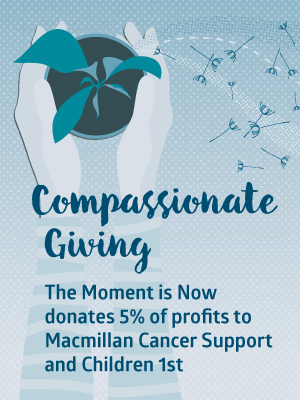Three key things to remember about mindful acceptance
If you’re learning or practising mindfulness, sooner or later, you’ll come across the sometimes tricky concept of mindful acceptance. What does ‘mindful acceptance’ mean? And what are the benefits of practising acceptance? In this blog post, we’ll answer these questions and outline three key things to remember about mindful acceptance.
It can be difficult accepting that, at the present moment, a situation you don’t like can’t be changed.
- Imagine you’ve had a disagreement with someone at work or a friend or family member. Your mind may find it easier to spend time going over and over how you could have acted or spoken rather than accepting what’s happened.
- Or perhaps there’s a situation coming up in the future that you really can’t avoid or control – and yet your mind continues to tell you ‘if only’ stories about how things could be different.
Human minds naturally tend towards trying to rewrite the past or gain absolute control over the future — neither of which is possible, of course.
With each event that occurs in your life, though, you have choices about how you react. In his blog Zen monastery lessons on living here and now, Giovanni Dienstmann describes how, when something happens in your life, you can:
… be there with mindfulness and an open heart, or you can be half there and half in your stories. You can choose to see that event through the eyes of your preferences and your emotions; to try to force reality into your personal bias. Or you can experience it and respond from a deeper place inside yourself — a place that sees all events as opportunities to express your true self, and all moments as equally precious. This is a place of non-judgement, of rest, of equanimity…”
Putting yourself in a strong place
Accepting the present moment as it really is can put you in a strong place.
By accepting the reality of a situation instead of denying or resisting it, you have the power to choose how you react to that situation. Responding to situations in a mindful way with acceptance and awareness, rather than automatically reacting in the same ways you always have in the past, can be helpful and empowering. It gives you the headspace to make new, alternative choices.
Mindful acceptance changes your focus from fighting the present moment to working with the present moment.
Practising mindful acceptance
Here are three things to remember about mindful acceptance.
1: Acceptance is not about resignation
Acceptance is not about resigning yourself to whatever is happening, rendering yourself helpless or giving up! Life and all its challenges happen; there are some things that we are able to or want to change and some things we can’t. Mindfulness and acceptance is not against change.
2: Let go of trying to solve or change the impossible
While you may not be able to change a particular situation, by practising mindful acceptance, you have the opportunity to bring some kindness and compassion to yourself in the process. Give yourself permission to let go of trying to solve or change the impossible! Bear in mind these words from Sharon Salzberg:
… the conflict and frustration we feel when we can’t control the world doesn’t come from our inability to do so but rather from the fact that we are trying to control the uncontrollable.”
There will be some situations that you may not be able to change. The challenge is to be able to recognise these situations and to do so from a mindful position, aware that you can still retain some sense of control; you do this by making a conscious decision not to attempt to exert control and, instead, accept the situation as it is.
3: Acceptance is a powerful starting point for dealing with emotions
If you try to fight or ignore an emotion, it often simply gets stronger. When you stop trying to resist or ignore your emotion — perhaps by simply seeing if you can observe it non-judgementally — you can begin to develop a more positive relationship with the emotion itself.
Once you allow the conflict to cease and the emotion stops fighting back or struggling to get your attention, it can start to settle, and can often be released without you doing anything. As Professor Mark Williams writes:
When we stop trying to resist unpleasant feelings, we may find that they can drift away by themselves. When we stop trying to make something happen, a whole world of fresh and unanticipated experiences may become accessible to us.”
Remember, the more you think about your emotion, the more intense it will feel. In a sense, you hold it there through your thoughts and therefore extend the duration of it. Once you get out of the way, it can be free to release more effectively and more easily.
Another way to bring mindfulness into your life…
👉 Sign up for our quarterly newsletter and get a FREE weekly mindfulness reminder to bring a moment of balance and calm into your everyday life. Browse our archive to read examples of our weekly mindfulness reminders.









